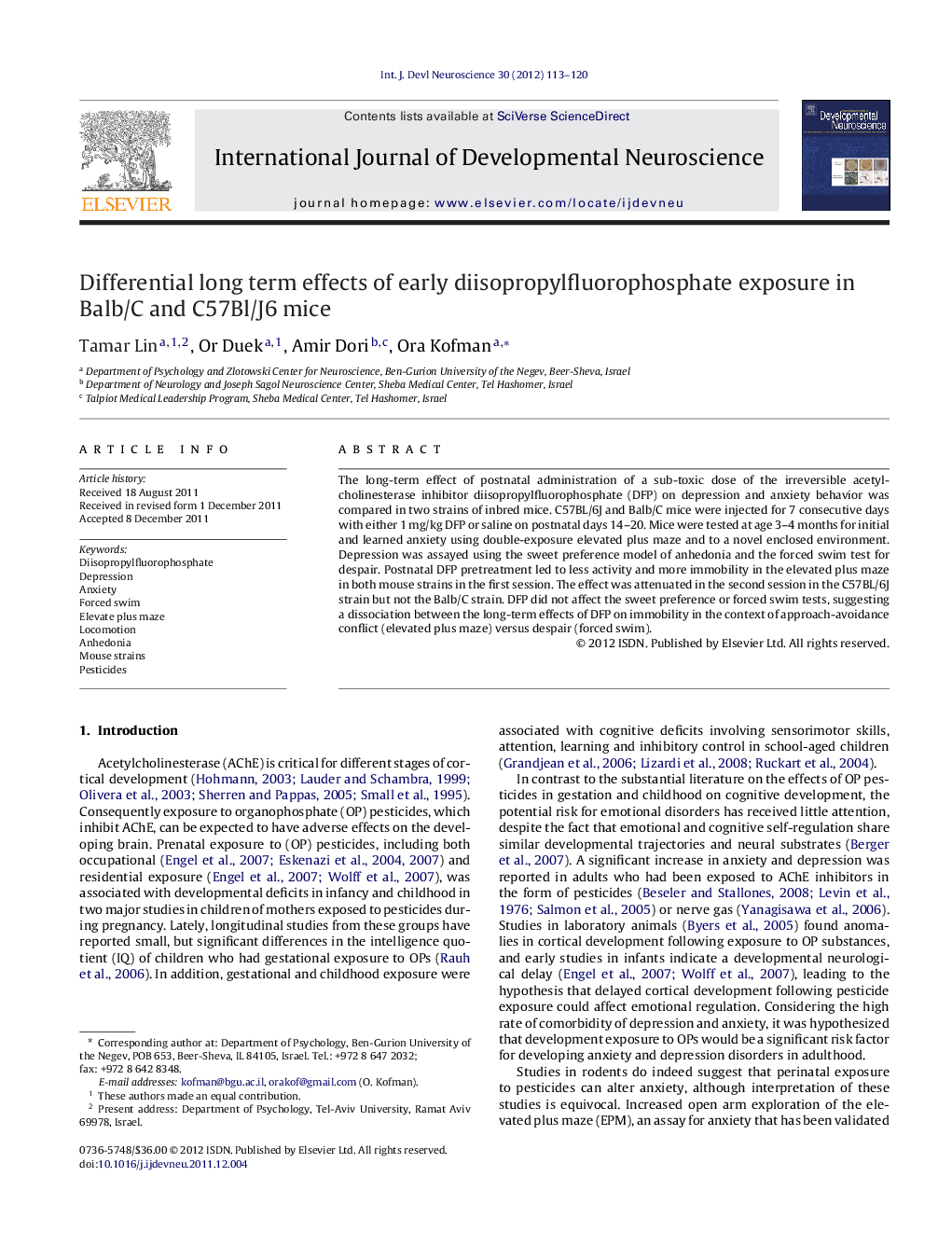| Article ID | Journal | Published Year | Pages | File Type |
|---|---|---|---|---|
| 2786283 | International Journal of Developmental Neuroscience | 2012 | 8 Pages |
The long-term effect of postnatal administration of a sub-toxic dose of the irreversible acetylcholinesterase inhibitor diisopropylfluorophosphate (DFP) on depression and anxiety behavior was compared in two strains of inbred mice. C57BL/6J and Balb/C mice were injected for 7 consecutive days with either 1 mg/kg DFP or saline on postnatal days 14–20. Mice were tested at age 3–4 months for initial and learned anxiety using double-exposure elevated plus maze and to a novel enclosed environment. Depression was assayed using the sweet preference model of anhedonia and the forced swim test for despair. Postnatal DFP pretreatment led to less activity and more immobility in the elevated plus maze in both mouse strains in the first session. The effect was attenuated in the second session in the C57BL/6J strain but not the Balb/C strain. DFP did not affect the sweet preference or forced swim tests, suggesting a dissociation between the long-term effects of DFP on immobility in the context of approach-avoidance conflict (elevated plus maze) versus despair (forced swim).
► Postnatal diisopropylfluorophosphate attenuated movement in adult Balb/C females. ► No effect of DFP was observed on forced swim or sweet preference. ► C57Bl/J females were unaffected by postnatal DFP in anxiety and depression tests.
